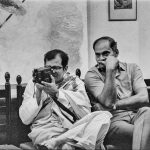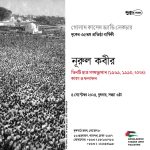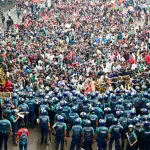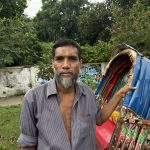

-
We all helped suppress the Egyptians. So how do we change?
Subscribe to ShahidulNews By Johann Hari The Independent Friday, 4…
-
September 22 is for remembering
Subscribe to ShahidulNews Daily Mirror THURSDAY, 23 SEPTEMBER 2010 00:00…
-
-
-
China-US Politics over Exhibiting Tibet. In Dhaka
By Rahnuma Ahmed Writer and translator Tarek Omar Chowdhury, a…
-
-
Elections 2008. Victory, impunity and terror
Rahnuma Ahmed I?m a pessimist because of intelligence, but an…
-
-
-
Doubts about December parliamentary elections
Interviews with Nurul Kabir, editor, New Age Jonotar Chokh (16…
-
?You cannot eat coal?: Resistance in Phulbari
Subscribe to ShahidulNews By Rahnuma Ahmed ? ?Only when the…
-
A Beginner's Guide to Democracy
Subscribe to ShahidulNews Rahnuma Ahmed I don’t often get brainwaves.…
-
-
-
-
-
-
-
-
Latest Posts
Categories
- 1971
- Afghanistan
- Arts
- Bangladesh
- Capitalism
- Caretaker government
- Censorship
- China
- Chittagong Hill Tracts
- Chobi Mela
- Chobi Mela VII
- Coal
- Colonialism
- Consortium government
- Corruption
- COVID 19
- Crossfire
- culture
- Current News Photos
- Democracy
- development
- Disappearances
- disasters
- Drik and its initiatives
- Drik DNA
- Drik's Network Partners
- Drugs
- economy
- Education
- Elections
- Energy
- environment
- exploitation
- features
- Film
- Garments
- Gas
- Gender
- Genocide
- Global Issues
- Governance
- guimet
- Health
- History
- Human rights
- Humour
- Immigration
- Imperialism
- India
- Interesting sites
- Interviews
- Interviews and Features
- Islam
- Kalpana Chakma
- Killings
- Law
- lectures
- literature
- Major Features on Bangladesh
- Majority World
- media
- Media issues
- Migration
- Military
- mining
- Mir Jafar
- Monarchy
- Music
- My Photo Essays
- Nepal
- New Age
- New Media
- News Archives
- News Photo Archives
- Nuclear
- Occupation
- Oil
- Pakistan
- Partition
- Pathshala
- People
- Personal
- Photography
- Photojournalism
- Photojournalism issues
- photojournalist
- politics
- Poverty
- RAB
- Rahnuma Ahmed
- Religion
- Resistance
- Reviews
- Science
- security
- Shahidul Alam
- Sheikh Hasina
- short stories
- Sites of Drik and Pathshala photographers
- South Asia
- Southern Exposure
- Sports
- Sri Lanka
- surveillance
- Taliban
- Technology
- Terrorism
- Transport
- UK
- Uncategorized
- USA
- Violence
- War
- war on terror
- Water
- World
Tags
1971 Art Arts Bangladesh book censorship Chobi Mela Chobi Mela VII culture Death democracy Dhaka Drik education Elections exhibition Festival garments Gaza Genocide Governance history Human rights India Israel Journalism Law literature Majority World media Military Pakistan Palestine Pathshala Photography Photojournalism politics Rahnuma Ahmed resistance Shahidul Alam USA Violence Visual Arts War War Crimes



